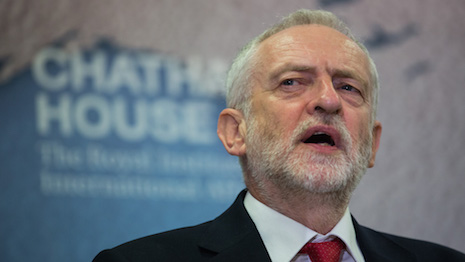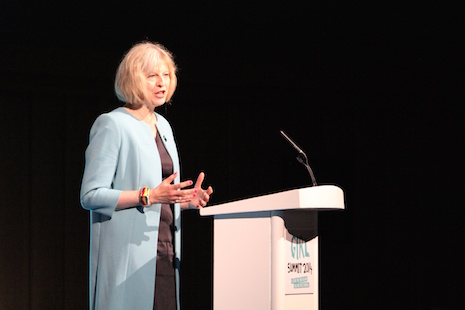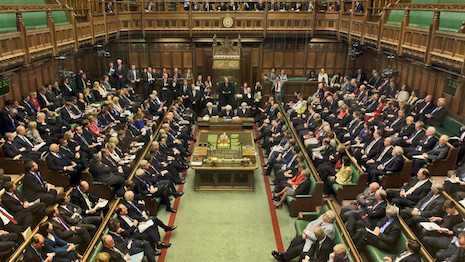 Jeremy Corbyn could still stage an upset, which would have very different effects on Brexit negotiations than a win for Theresa May
Jeremy Corbyn could still stage an upset, which would have very different effects on Brexit negotiations than a win for Theresa May
Many were surprised when British Prime Minister Theresa May issued a statement supporting a snap election in April, but Parliament quickly voted in overwhelming numbers to enact the early election in the United Kingdom.
While many are confident Ms. May and the Conservative Party will prevail, just as many are banking on a surprise win for Labour Party leader Jeremy Corbyn, whose fiery rhetoric in support of the working class has been drawing massive support. Whoever wins, Brexit is likely to still happen, but in what way and how it will affect the British luxury market depends on which party comes out of this election in power.
"If Labour did indeed win you might see the sterling come under a lot of pressure falling as low as $1.20 against the U.S. dollar, due to the fact that Corbyn is not seen as a strong opposition for the EU," said James Trescothick, senior global strategist at easyMarkets, Majuro, Marshall Islands. "This could lead to the U.K. walking away with a rough deal."
Snap election
Normally, the U.K. has elections every five years, but if Members of Parliament vote for it, an early election can be called. This was the case this year.
That means the outcome of the election on June 8 will decide which of the U.K.’s two biggest parties will control Parliament, with Ms. May’s Conservative Party facing off against Mr. Corbyn’s Labour Party.
No matter which politician takes the reins of prime minister, Brexit is unlikely to be reversed, as Mr. Corbyn has expressed similar disdain for the European Union, albeit for very different reasons than those of the Conservative Party.
But the exact composition of Brexit, which is already shown to have a potentially significant impact on the British luxury market, will be strongly affected by which party is in power when negotiations are conducted with the EU.
UK Prime Minister Theresa May
Another section of the luxury industry that will be affected by the election is the status of so-called "non-doms;" people who live in the UK but with income from around the world who claim non-domiciled status and do not pay UK taxes on all of their income.
These wealthy individuals are often major patrons of luxury brands due to their wealth and are a valuable customer, but their ability to avoid taxes on much of their income has rankled many British citizens. The Conservative Party has vowed to reform the non-dom rules to make them more strict, while Labour has vowed to abolish non-dom status altogether, citing it as a form of tax evasion.
There are four possibilities worth considering: Labour wins the election, Conservative wins by a small margin, Conservative wins in a blow-out and a hung Parliament. While Labour has a real possibility of winning, a blow-out is highly unexpected for them.
Supposing Conservatives win a small majority, expect a weaker pound, which has already been weakened by the announcement of Brexit and made international tourism more appealing consequently.
"If this was to occur, we could also see a strong sell-off of the pound, as Theresa May will still be lacking the strength behind her, which would lead to worries over a 'hard Brexit,'" easyMarket's Mr. Trescothick said.
However, if Ms. May and the Conservatives win a large majority, this could also heavily affect the exchange rate of the British pound.
"This outcome could see a far more positive impact on the sterling as the market could see that Ms. May will be in a commanding position to negotiate better terms for UK’s exit from the EU,"Mr. Trescothick said. "The British pound against the U.S. Dollar could possibly challenge the key level at $1.30."
Finally, a hung Parliament, in which no political party gains majority control of the government, would be disastrous for Brexit negotiations.
"With this result securing any deal with the EU will prove to be very difficult as any set direction for negotiations will be lost amongst all the bickering that will very likely occur between all the parties in the commons," Mr. Trescothick said. "The British pound and U.S. dollar rate could once again fall as low as $1.20."
Brexit flavors
Since the surprise Brexit win, the U.K.’s currency fluctuation has been a boon for travelers from other countries coming to spend in the British luxury market.
While the citizens of the U.K. were still reeling over the surprise win for the Leave campaign, international travelers seized on the opportunity, with the depreciated currency making the country a more attractive destination for tourists (see story).
Similarly, property prices have increased to meet that demand in the luxury real estate sector.
British Parliament
Knight Frank’s Prime Country House Index Q1 2017 showed a 0.6 percent increase in prices within the first quarter, after three consecutive quarters of price declines. However, while the market is very active, there is a persistent shortage of stock (see story).
Despite geopolitical and economic turmoil, the British luxury goods sector is expected to grow in the coming years. Projected sales in 2019 are 50 billion pounds, and about 158,000 people are forecasted to work in the industry then, according to Walpole (see story).
While Brexit may be inevitable no matter what, the real question for British voters is what it will look like and who will be doing the negotiating.
"Nothing is ever certain," easyMarket's Mr. Trescothick said. "The experiences of 2016 are a testament to that.
"In reality, the markets are just as unpredictable as elections and nobody knows what will happen. One thing is to be expected; in the early hours of the June 9 markets will be alive and kicking," he said.


